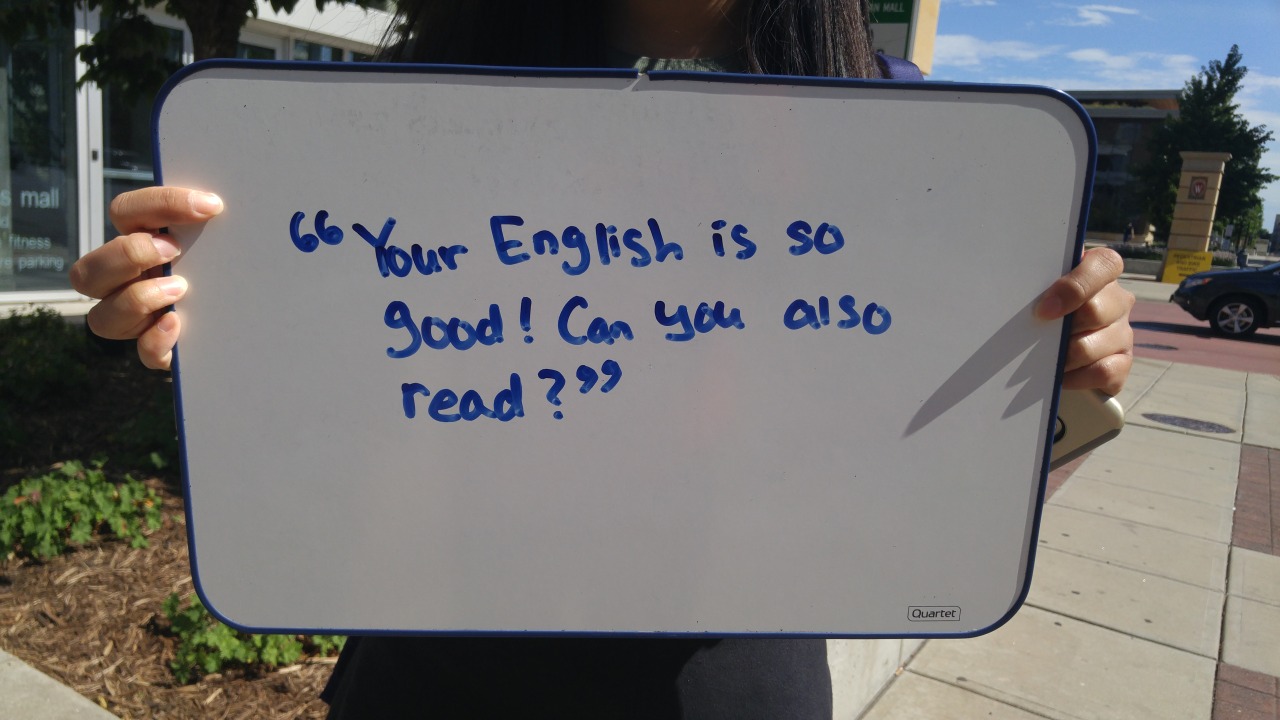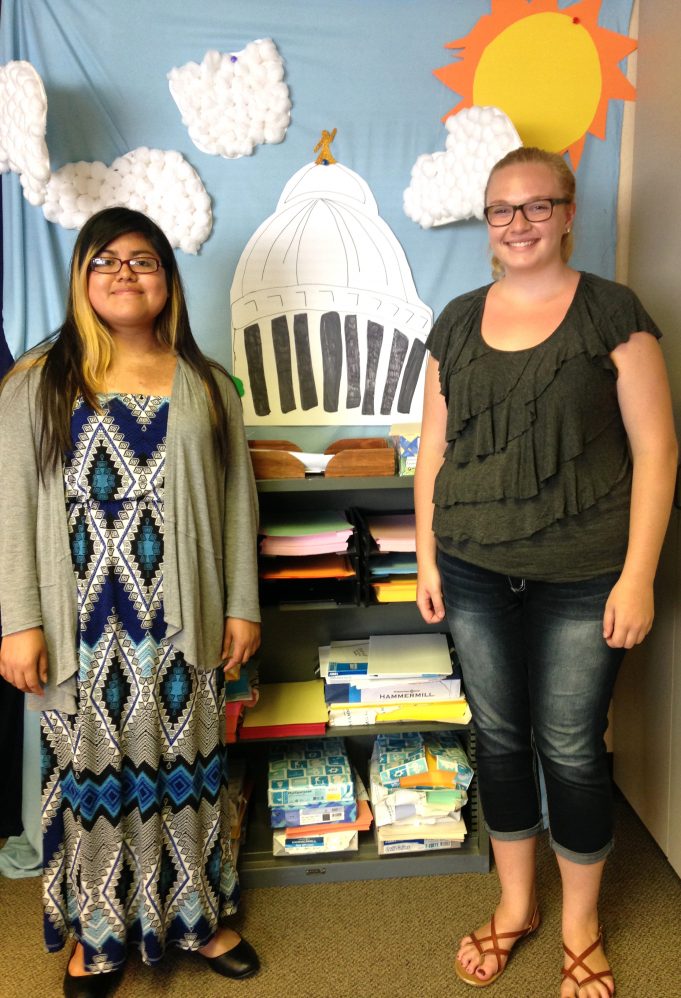Melissa Perez and Samantha Schultz are extremely busy young ladies. Every morning, they rise early for breakfast and to prepare for their 9 a.m. classes in subjects ranging from calculus to college-level writing. After a quick bite to eat around noon, they leave campus at the University of Wisconsin-Madison and head downtown to the Wisconsin Council on Children and Families (WCCF.)
Perez and Schultz are both rising high school seniors enrolled in the UW PEOPLE program. PEOPLE recruits, trains, and mentors youth who identify as students of color and/or low-income throughout middle and high school with the goal of preparing them for success in college and beyond.
This week marks the final few days of their internship at WCCF. Since early June, these scholars have put their feet to the street, talking to their high school peers and other young people throughout the state of Wisconsin about their experiences with racism and discrimination. Schultz and Perez created “Let Us Speak!” an online blog chronicling stories of Wisconsin youths’ experiences with racism and discrimination.

You may have seen Perez and Schultz out last week, interviewing students for their blog. Perez recalls, “We went out to East Campus Mall, passed out flyers and talked to people about [Let Us Speak!] We collected quotes about stuff they remember that stuck with them.”
The folks they met shared some compelling narratives, but they are only a small glimpse into the content archived on their Tumblr page. Young people are more connected than ever and have a variety of social media options. They specifically selected Tumblr since it allows contributors to post their stories anonymously. Perez believes anonymity is key to creating a safe space where students do not feel silenced.
“I interviewed my friend, and she talked about how a lot of people pity black people,” Perez says. “She gets frustrated a lot by that, and she doesn’t like living through it. [My friend’s story] stands out for me because she is always happy and she never really talked before about the aspect of being black in a really white state.”
 “Let Us Speak!” has managed to collect a wide swath of narratives from students across racial backgrounds. These young people share their feelings about police brutality against black and brown people, affirmative action, white privilege, immigration, and the myth of the “American Dream.” Many of these narratives come from high school students.
“Let Us Speak!” has managed to collect a wide swath of narratives from students across racial backgrounds. These young people share their feelings about police brutality against black and brown people, affirmative action, white privilege, immigration, and the myth of the “American Dream.” Many of these narratives come from high school students.
Schultz feels discussions about racism and discrimination, especially among high school students, are often relegated to the margins. She believes “Let Us Speak!” allows her peers to create community and inspire one another
“Let Us Speak! is a good way for students to express their ideas, feelings, and stories and get their thoughts out and be heard,” Schultz says. “A lot of us have gone through some sort of discrimination and being able to post it for other people to see and be inspired is important to change people’s close-mindedness and create a better sense of community.”










